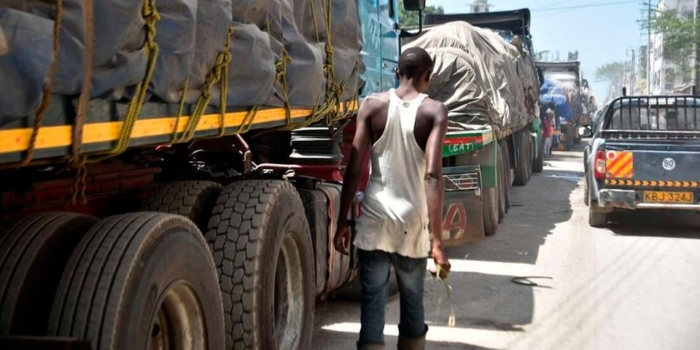By Charles Onyango-Obbo
Journalist, writer and curator of the Wall of Great Africans
What you need to know:
- It’s telling the kind of products we fight over.
- These food fights make a mockery of the East African common market.
It’s time for the quarterly East African food fight, with Kenya announcing that it had added maize on the list of exports from Uganda and Tanzania that are banned from its market.
In January, it banned chicken, egg and meat imports to support its “producers to recover from disruptions in their livestock enterprises occasioned by Covid-19”.
The ban on Ugandan and Tanzanian maize was, ostensibly, because there has been an increase in chronic aflatoxin-related illnesses in Kenya, some of which have been fatal.
It’s telling the kind of products we fight over. Yes, even industrialised economies fight over chicken and vegetables, but they also row over high-value stuff like computer chips, aeroplanes and vaccines.
I’d cheer from the rafters if Kenya was blocking Ugandan Kiira electric buses or Uganda banned the importation of a Kenyan-made vehicle like Mobius. Those are relatively complex products. But no, it’s mostly chicken, meat, maize, beans, flour, rice and, at the high end, sugar, milk, cement and, occasionally, booze.
These food fights make a mockery of the East African common market, and some are pushed by politicians who have stakes in inefficient companies who would be crushed by nimbler regional competitors, or big men protecting their monopolies.
But there is a lot more going on.
Backyard farmers
Like elsewhere in Africa, the East African middle class has been expanding, but it’s not particularly deep-pocketed. At the same time, partly due to the rot in the public sector, the goods and services that this middle class needs are available in quality in the private sector, where the cost is beyond their salaries.
For example, as underfunded state schools fall down the chimney, they need to be able to take their children to the pricey private ones. If you are an honest middle-level bank manager, or senior teacher in a government school, you make more money with a side hustle.
You do things like rearing chicken in your backyard, growing maize or keeping a few cows in the village that you hope your father will not sell off to pay his debts at the local shops, or you bake.
The impact of this on politics has been very interesting — and, perhaps, even salutary. When “farmers” complain of eggs from neighbouring countries putting them out business, they’re not all your typical old school chap in soiled overalls, who is too busy toiling in the countryside to complain to his parliamentarian.
It’s probably the teacher who is giving extra maths lessons to the minister’s son, who couldn’t sell the 10 trays of eggs from his backyard chicken farm. It could be the bank clerk who helps the MP with his banking affairs, whose mother back in the village is looking after her four cows and she can’t sell their milk.
The explosion of telephone and backyard farmers has given a powerful protectionist voice to local eggs, chicken and meat that retail politicians in electorally treacherous places like Kenya can’t ignore.
Ugandan eggs
The irony is that this kerfuffle is happening at a time when the production of all these goods is still low despite all the stories about egg and milk gluts.
Not too long ago, a big man at the Farmer’s Choice meat plant factory at Roysambu, Nairobi, shocked me when he said that, despite the public view that they are big producers, they still produce “peanuts” relative to their capacity. He claimed that if all the cattle, chicken and pigs slaughtered for the market every day in East Africa were taken to Roysambu, it still wouldn’t be enough for it to run at full capacity.
Uganda supposedly produces a lot of eggs, and cheaply too. Does it? Four or so years ago, the story goes, President Yoweri Museveni visited the United Arab Emirates and complained to its rulers that they don’t buy enough from his country. He waxed grand about how Uganda could supply them with enough eggs till kingdom come.
The Emir obliged, and arrangements were made. A massive cargo plane landed at Entebbe Airport to pick up eggs. Though the eggs on hand appeared many, they didn’t fill even a quarter of the plane. A scramble for more eggs ensued as the plane stayed overnight. By the end of day two, it was barely half-full. It took off the next day, half-empty.
Expanding domestic consumption would soak up a lot of things, like these eggs that we fight over. One time, while I was writing about, well, industrial-level chicken business in East Africa, I asked a factory chief what it takes to grow frozen chicken sales. He told me it was electricity.
He said wherever electricity is extended to the small towns, business people buy freezers, and when they stick in frozen chicken, it is always snapped up.
There you have it. Were East Africa better electrified, there would be no chicken fights. Our problem would be that there wouldn’t be enough chicken.
@cobbo3
If you would like your article/opinion to be published on Uganda’s most authoritative news platform, send your submission on: [email protected]. You can also follow DailyExpress on WhatsApp and on Twitter (X) for realtime updates.




